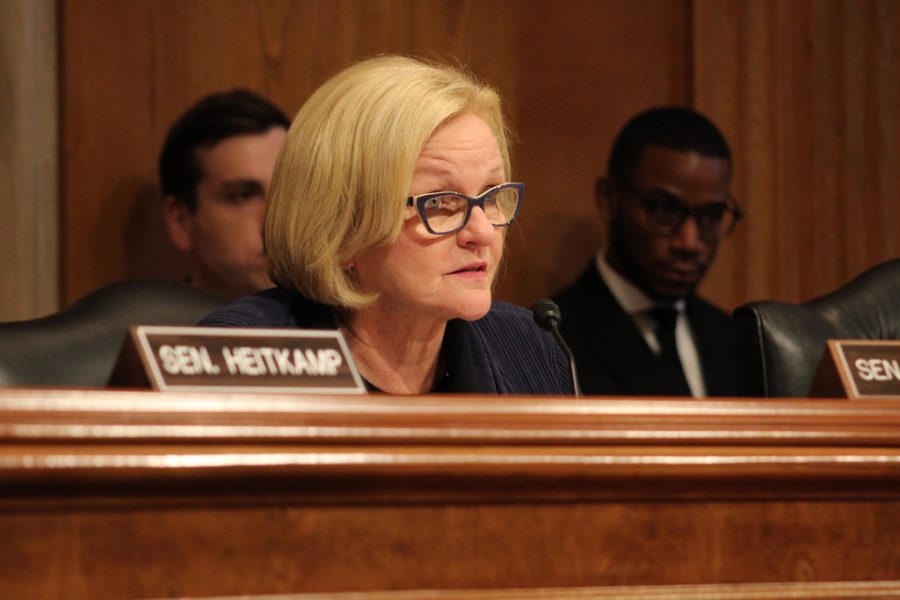Combatting the drug problem
Speaking at the Committee roundtable on opioid sales and marketing, U.S Senator Claire McCaskill discusses her investigation into the opioid crisis. Looking into businesses and practices that sell opioids could be one step to solving this fatal problem in America.
January 10, 2018
National Drug and Alcohol Facts Week was started in 2010. This is a week, specifically for teens, dedicated to disproving the myths about drugs and alcohol that are portrayed on the internet and in television. This year’s National Drug and Alcohol Facts Week starts on January 22. As of August of 2017, it has been reported that 3.7 per 100,000 teens ages fifteen to nineteen die from an overdose of drugs. Last year, opioid drugs had claimed more than 59,000 lives. This is partly why President Trump wants to target the younger audience when solving the drug problem in America.
In October of 2017, the President issued a opioid crisis across the United States. His plan to combat this crisis focuses on extensive advertising by the government. No immediate federal funding can be issued toward the crisis, but federal agencies are still encouraged to grant money. President Trump wants to persuade Americans that it is easy to stay away from drugs in the first place, which is similar to Nancy Reagan’s “Just Say No” campaign in the eighties. In his plan, it is imperative for the public to know that abusing drugs affects the people around them and is not socially desirable.
Another one of the president’s future actions to combat the opioid crisis is to build a wall along the American-Mexican border. He believes that most of America’s illegal drugs come from over the border, so the wall will lessen the amount of drugs flooding in. Realizing that people are willing to break the law in order to get opioids, President Trump desires to tighten enforcement on the sale and purchase of illegal drugs.
The president’s order will last ninety days, and it can be renewed if he deems it necessary. However, many believe he is not taking the correct steps to fix the problem. Instead of declaring a national crisis, he only made it a public health emergency. Making it a national emergency would allow the government to perform actions that are not normally permitted, while a public health emergency gives resources that can help a public health crisis. In addition, he failed to enforce the Public Health Services Act, which would be a more beneficial approach to solving this dilemma. Junior Johyl Green said, “I don’t think that Trump will be able to solve or even put a dent in the opioid crisis. It has been a problem for many years and what he is trying to do isn’t serious enough to help.” If President Trump is not able to solve this crisis, the drug problem in America could increase. It might get worse before it gets better.
National Drug and Alcohol Facts Week might prove to be even more intense for this year. Since the President wants to target young people for his campaign, this special day could be the leverage that he needs in the community.












